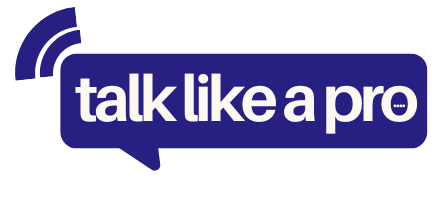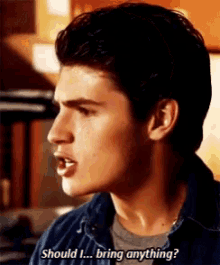When someone sends you ‘I’m Tired’ text a simple yet thoughtful response like “I understand, get some rest” or “Take a break, you need it” can validate the sender’s feelings and encourage them to prioritize their well-being.
This straightforward response acknowledges the person’s state and offers supportive advice without prying or making assumptions. When someone expresses fatigue, it’s important to approach the conversation with empathy rather than dismissing or minimizing their experience.
This text likely indicates the individual is feeling overwhelmed or drained, so a gentle,compassionate reply can go a long way in making them feel heard and cared for. Read on for more insights into crafting thoughtful responses to “I’m tired” messages.
Empathetic Responses
“You’ve been through a lot lately, it’s understandable to feel drained”
This response validates the recipient’s feelings and shows understanding for their challenging circumstances. It acknowledges the root cause of their exhaustion without judgment, and reassures them that their fatigue is justified. Some similar empathetic responses could be:
- “I can see why you’d be worn out, you’ve had so much on your plate”
- “You work so hard, it makes sense that you’re feeling spent”
- “Tiredness is the body’s way of signaling it needs a break, listen to it”
- “It’s okay to feel depleted sometimes, you’re only human”
- “I’m sorry you’re struggling with low energy right now, know that it will pass”
- “Exhaustion is temporary, this too shall pass. Focus on resting”
- “Your mind and body clearly need rejuvenation. Don’t beat yourself up”
- “You pour so much into everything you do, burnout is inevitable sometimes”
- “Feelings of tiredness are valid, your well-being matters most”
Words of Encouragement
“Don’t worry, things will look up once you get some quality rest”
This response offers reassurance and hope that relief from tiredness is within reach. It gently motivates the recipient to take care of themselves through rest and self-care. Other encouraging responses include:
- “Focus on recharging now, you’ll get your groove back soon”
- “Taking time off will do wonders, I believe in you”
- “This fatigue is temporary, your strength and resilience will return”
- “Allow yourself to fully unwind now, your energy will renew”
- “You’re a warrior, some rest will get you back in top shape”
- “Have faith that proper self-care will get you through this slump”
- “You’ve got this! Recuperation is key to bouncing back stronger”
- “Your spirit is indomitable, this lull will pass with quality rest”
- “I’m confident your natural vigor will resurface after some downtime”
Empowering Responses
“It’s admirable that you’re in tune with your body’s needs”
This type of response affirms the recipient’s self-awareness and champions their instinct to address tiredness proactively. It reinforces the notion that putting their well-being first is praiseworthy. Similar empowering responses could be:
- “I respect your honesty about needing rest, self-care is strength”
- “Voicing fatigue takes courage, I admire your self-advocacy”
- “It’s wise to know when you’ve reached your limits and need reprieve”
- “Prioritizing your energy is a sign of maturity, not weakness”
- “Insightful people like you know when to pause and recharge”
- “Acknowledging exhaustion and doing something about it is powerful”
- “Your self-awareness gives me confidence you’ll emerge recharged”
- “Identifying the need to rest actually shows mental fortitude”
- “It takes courage to listen to your body, I applaud you for that”
Lighthearted Responses
“You must be truly tired if even words are starting to feel heavy!”
This playful yet understanding quip injects levity while still validating the recipient’s weariness. It uses humor to diffuse intensity and remind the person not to take themselves too seriously. Other witty, lighthearted responses might be:
- “Sounds like your batteries are beeping for a recharge!”
- “You must be tired from out-awesoming everyone else as usual!”
- “Tiredness seems to have made an unwanted cameo in your life”
- “Time to put that internal snooze button to use and catch some Zs!”
- “How tired are you exactly? Dragging a Tired of holding up the world?”
- “If tiredness were an Olympic sport, you’d take the gold medal!”
- “Maybe hire a professional napper to show you how it’s done!”
- “Tiredness is proof you were using ALL your awesomeness today”
- “Perhaps it’s time to get those squeaky bedsprings replaced?”
Probing Responses
“I sense there’s more to it than just surface fatigue, what’s weighing you down?”
This insightful response demonstrates care by gently probing further about potential underlying causes. It encourages the recipient to share more context if desired, without pressure. Other inquisitive yet considerate responses include:
- “Is everything okay? I’m here if you need to vent or problem-solve”
- “That sounds rough, do you want to talk through what has you so drained?”
- “I’m worried this tiredness might point to something more serious, can you elaborate?”
- “Persistent exhaustion isn’t normal, what factors could be contributing?”
- “I care about your well-being, what could help alleviate this fatigue?”
- “Tiredness can stem from different sources, is there anything specific draining you?”
- “I don’t want to pry, but is there anything pragmatic I could do to help ease your load?”
- “This fatigue seems abnormal, I’m happy to listen if you want to dig into root causes”
- “If you’re open to it, I’m here to brainstorm ways to rejuvenate your energy”
Practical Suggestions
“Why don’t you wrap things up for the day and fully unplug this evening?”
This response offers a tangible solution by recommending the recipient step back from obligations to prioritize rest. It provides an actionable suggestion for instantly decreasing demands. Other practical tips could include:
- “Maybe take a relaxing bath and get to bed early tonight”
- “Could you block off your calendar for self-care tomorrow?”
- “Have you considered taking a mental health day from work?”
- “Getting outdoors for fresh air and movement might reinvigorate you”
- “What used to re-energize you? Revisit that activity soon”
- “How about making a list of energy drains to eliminate where possible?”
- “I could bring over a healthy meal so you don’t have to cook tonight”
- “Would it help to hire task support to lighten your workload briefly?”
- “Let’s think of easily implemented lifestyle tweaks to reduce your fatigue”
Indirect Reassurance
“I’ve actually been there myself, it’s not easy but very temporary”
This response provides reassurance through shared experience without dismissing the recipient’s feelings entirely. It aims to instill hope through the acknowledgment that tiredness is both common and fleeting. Other examples of indirect reassurance are:
- “Exhaustion comes for all of us in waves, you aren’t alone”
- “Everyone encounters periods of burnout, this too shall pass”
- “I remember that bone-tired sensation well, it’s uncomfortable but beatable”
- “Fatigue is the body’s way of forcing us to rest, so we can’t ignore it forever”
- “Tiredness is something I myself have to manage with self-care routines”
- “We all cycle through spells of depletion, the key is taking breaks”
- “When I’ve had phases like this, the only cure was replenishing rest”
- “Tiredness reminds us of our humanity, not our weaknesses or flaws”
- “What you’re feeling is a common human experience, I promise it lifts”
Motivational Responses
“Embrace this as an opportunity to get back in touch with what energizes you”
This motivational response reframes tiredness as a catalyst for positive self-reflection and growth. Rather than viewing it negatively, it positions fatigue as a chance to re-evaluate priorities.
Other motivational ideas include:
- “This weariness may be life’s way of telling you to reassess and refocus”
- “See this as a wakeup call to check in with your deeper needs and desires”
- “Now’s the time to step back and realign your actions with your values”
- “Use this period to recalibrate how you spend your limited daily resources”
- “Exhaustion often arises when we aren’t living authentically, reflect on that”
- “Could this tiredness be your internal guide prompting a positive life reset?”
- “Your fatigue may contain wisdom, listen closely to what it’s trying to tell you”
- “Step back and utilize this slowdown to gain clarity on your true priorities”
- “Burnout allows you to let go of what’s unimportant and reconnect with purpose”
Caring Suggestions
“I think some restorative rituals would do you a world of good right about now”
This caring response acknowledges the need for immediate self-nurturing and self-renewal practices. It recognizes that soothing activities tailored to the individual could re-energize remarkably. Some additional caring suggestions could include:
- “You should schedule a massage or spa day, you’ve earned some pampering”
- “Might I suggest a warm bath with Epsom salts to soothe your body and soul?”
- “Have you tried meditation or gentle yoga to calm your mind and breath?”
- “Reading an engrossing novel you can get lost in could transport you mentally”
- “Could you benefit from a hiking or camping getaway to immerse in nature?”
- “It might help to play that comforting playlist of music that lifts your spirit”
- “Since tiredness drains your mental sharpness, ditch devices for a night”
- “I’m wondering if purging clutter could re-energize your living environment?”
- “Perhaps writing in a journal or drawing could provide cathartic release?”
How to Reply to a Girl Who Texts ‘I’m Tired’
When a girl texts “I’m tired,” a thoughtful response demonstrating care and consideration is ideal. Avoid appearing dismissive or indifferent to her fatigue. Instead, reply with empathy and a desire to understand what’s weighing her down.
“I’m so sorry you’re feeling drained. Is there anything specific draining your energy lately?”
This response validates her tiredness, gently probes for more context, and expresses authentic concern. Aim to be a supportive listener ready to brainstorm solutions if needed. Other caring examples include:
- “You’ve had so much on your plate recently, it’s understandable you feel spent. I’m here if you need to vent.”
- “Tiredness is the body’s way of signaling it needs rest and replenishment. Could you take a relaxing bath and get to bed early tonight?”
- “I sense there may be more behind this fatigue than meets the eye. Would it help to talk through what’s weighing you down?”
How to Reply to a Guy Who Texts ‘I’m Tired’
When a guy voices exhaustion, avoid the tendency to problem-solve or offer unsolicited advice. Instead, lead with empathy and words of reassurance that his feelings are valid. Instill confidence that with proper self-care, his vigor will renew.
“I can see you’re really feeling it lately, but don’t doubt that this cloud of tiredness is only temporary. Focus on replenishing yourself right now.”
This compassionate response normalizes his fatigue, offers hope for rejuvenation, and encourages prioritizing self-care without judgment. Consider responses like:
- “Exhaustion is the body’s way of signaling it needs a break. I know this intense tiredness will pass if you listen to what your mind and body require.”
- “Everyone encounters phases of burnout, try not to be too hard on yourself right now. Your natural energy will resurface with quality rest.”
- “I admire your courage in voicing fatigue. That self-awareness gives me confidence that with some respite, your strength will return soon.”
Key Takeaways
- Tiredness is a Universal Human Experience: Exhaustion affects everyone at times, it’s not a personal shortcoming. Respond with empathy and reassurance.
- Listen for Underlying Issues: Fatigue could signify broader challenges that warrant compassionate dialogue to uncover root causes. Be present without judgment.
- Suggest Replenishing Self-Care Activities: Provide tangible recommendations tailored to the individual for restorative practices to combat tiredness and promote rejuvenation.
Conclusion: The Power of Presence
While tiredness is often seen as an inconvenient state, it also presents an opportunity. When someone opens up about feeling drained, it’s a chance to demonstrate care through thoughtful presence. Crafting appropriate responses in these moments can deepen connections and help loved ones navigate challenging seasons with greater ease.
Rather than rushing to “fix” the situation, leading with empathy, compassion, and an open ear provides comfort. Offering hope through shared experiences, coupled with practical suggestions for rest and self-renewal, empowers individuals to address their fatigue holistically. By leaning into the intimacy of vulnerability with patience and without judgment, powerful healing can occur.
At its core, how we respond holds the potential to uplift the human spirit. When you sense someone is running on empty, view it as an opening to be fully present. Because perhaps the most meaningful act is bearing witness with tenderness when life becomes wearying. In those still moments of care, we remind each other of our fortitude and capacity not just to endure, but to renew.



